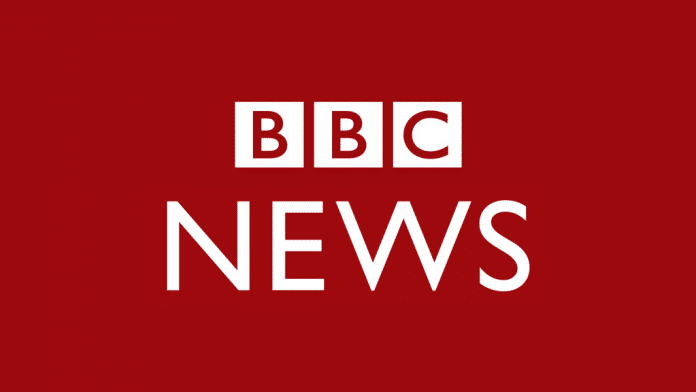The BBC is suspending the work of all its journalists in Russia after the Kremlin brought in a new law meaning people who spread “fake” information about Russia’s armed forces could be jailed for up to 15 years.
The corporation said the safety of its staff is “paramount” and it is “not prepared to expose them to the risk of criminal prosecution simply for doing their jobs”.
It confirmed its news service in Russian will continue to operate from outside Russia.
BBC director general Tim Davie said: “This legislation appears to criminalise the process of independent journalism. Said without irony!!
“It leaves us no other option than to temporarily suspend the work of all BBC News journalists and their support staff within the Russian Federation while we assess the full implications of this unwelcome development.
“The safety of our staff is paramount and we are not prepared to expose them to the risk of criminal prosecution simply for doing their jobs. I’d like to pay tribute to all of them, for their bravery, determination and professionalism.”
Mr Davie added the BBC remains committed to making “accurate, independent information” available to the world and its journalists in Ukraine and elsewhere “will continue to report on the invasion of Ukraine”.
Meanwhile:
The decision came after the new law was passed on Friday, which will also make public calls for sanctions against Russia a criminal offence.
“If the fakes lead to serious consequences then imprisonment of up to 15 years threatens,” said the lower house of parliament, the Duma.
The new law appears designed to give Russia even stronger powers to supress information about its invasion of Ukraine, which the Russians call a special military operation.
Russia’s upper house of parliament also approved the law on Friday, and it could take effect in the coming days after President Putin signs it off.
People spreading so-called false information will face up to three years in jail, but if there are “severe consequences” they could get up to 15 years.
Russian news outlets have been ordered to only publish information from government sources and must describe the situation in Ukraine as a “special military operation” – “war” and “invasion” are banned by media regulator Roskomnadzor.
With mounting civilian casualties, Ukraine claiming thousands of Russian deaths, and huge international sanctions, the Kremlin is keen to portray its own version of events.
Western sources such as the BBC, Deutsche Welle, Radio Free Europe and others are also now being blocked by the regulator for spreading “fake” information, Russia’s Interfax news agency said on Friday.
Some independent Russian media have already had to close or suspended service after going against the government line, including radio station Ekho Moskvy and TV station Dozdh.
The editor of Dozdh has fled Russia and told Sky News the situation had been getting “worse and worse” over the last few days and that he and colleagues had been threatened.
And – just two hours after the law was passed – news website Znak said it was closing due to “the large number of restrictions which have appeared recently affecting the work of media in Russia”.
International technology and social media giants are also at the heart of the information battle.
Twitter and Facebook have both reported having their services restricted and deliberately slowed down for clamping down on media sources linked to the Russian state.
Facebook policy chief Nick Clegg said it had refused Russia orders to stop fact-checking and labelling content from state-owned media companies.
The Reporters Without Borders group has said “the information war is in full swing in Russia” and that President Vladimir Putin needed all national media on a “battle footing in order to justify the invasion of Ukraine”.
Despite censorship efforts, it’s extremely hard to block the huge flow of information via social media and the internet.
Protests have been held in many Russian cities but most are quickly broken up, with police often hauling people away into vans.
This week five children were among those detained in Moscow after protesting at the Ukraine embassy.







